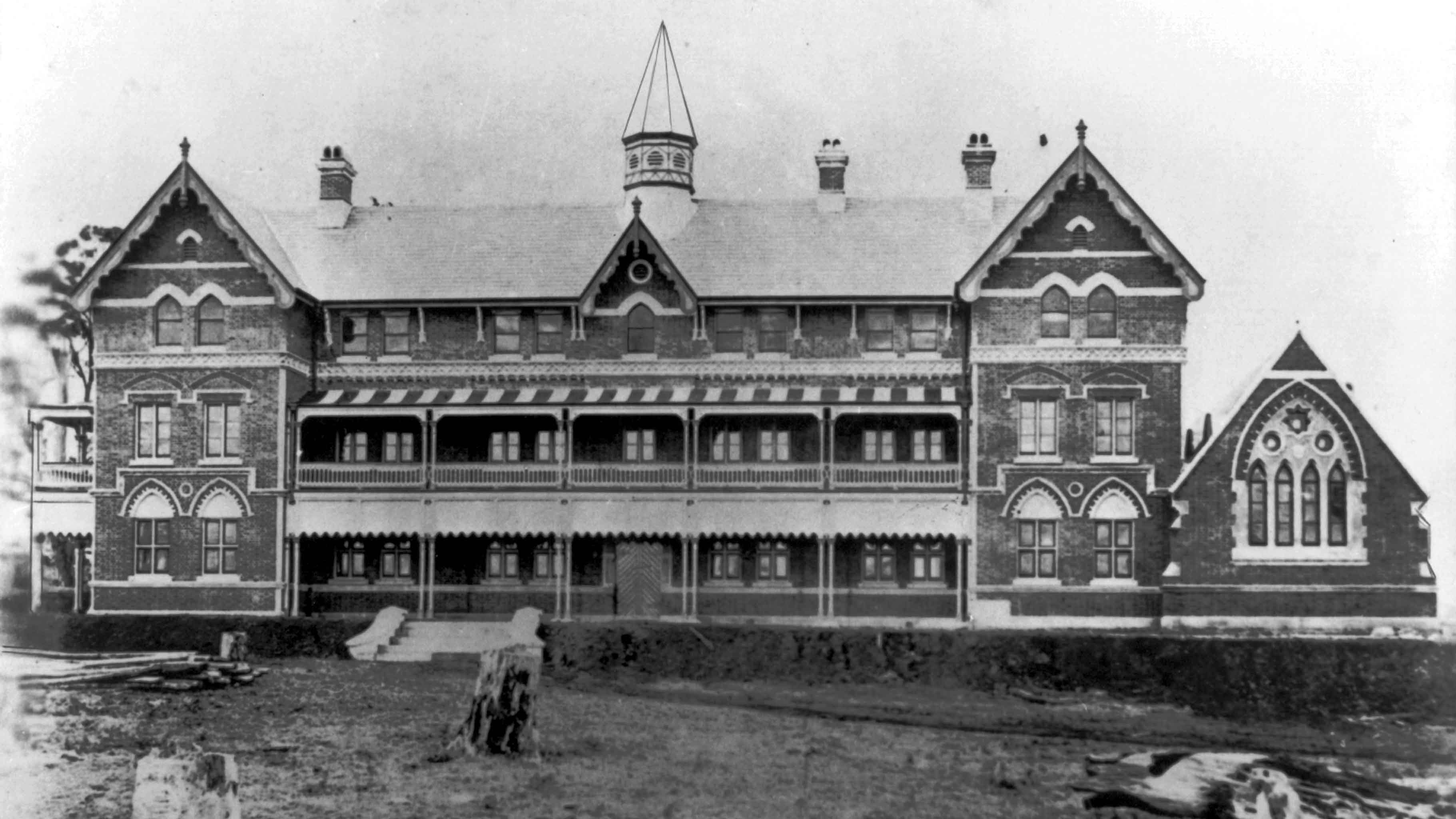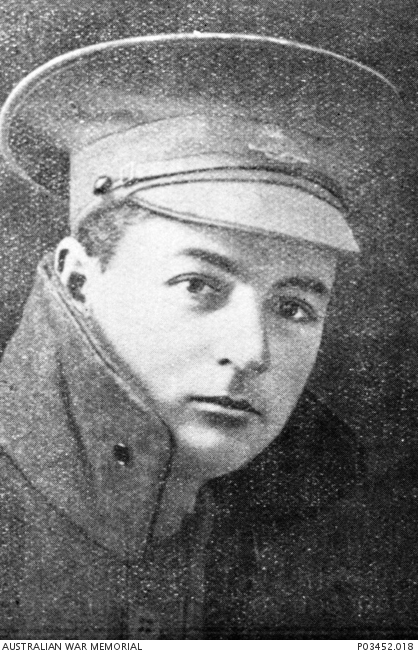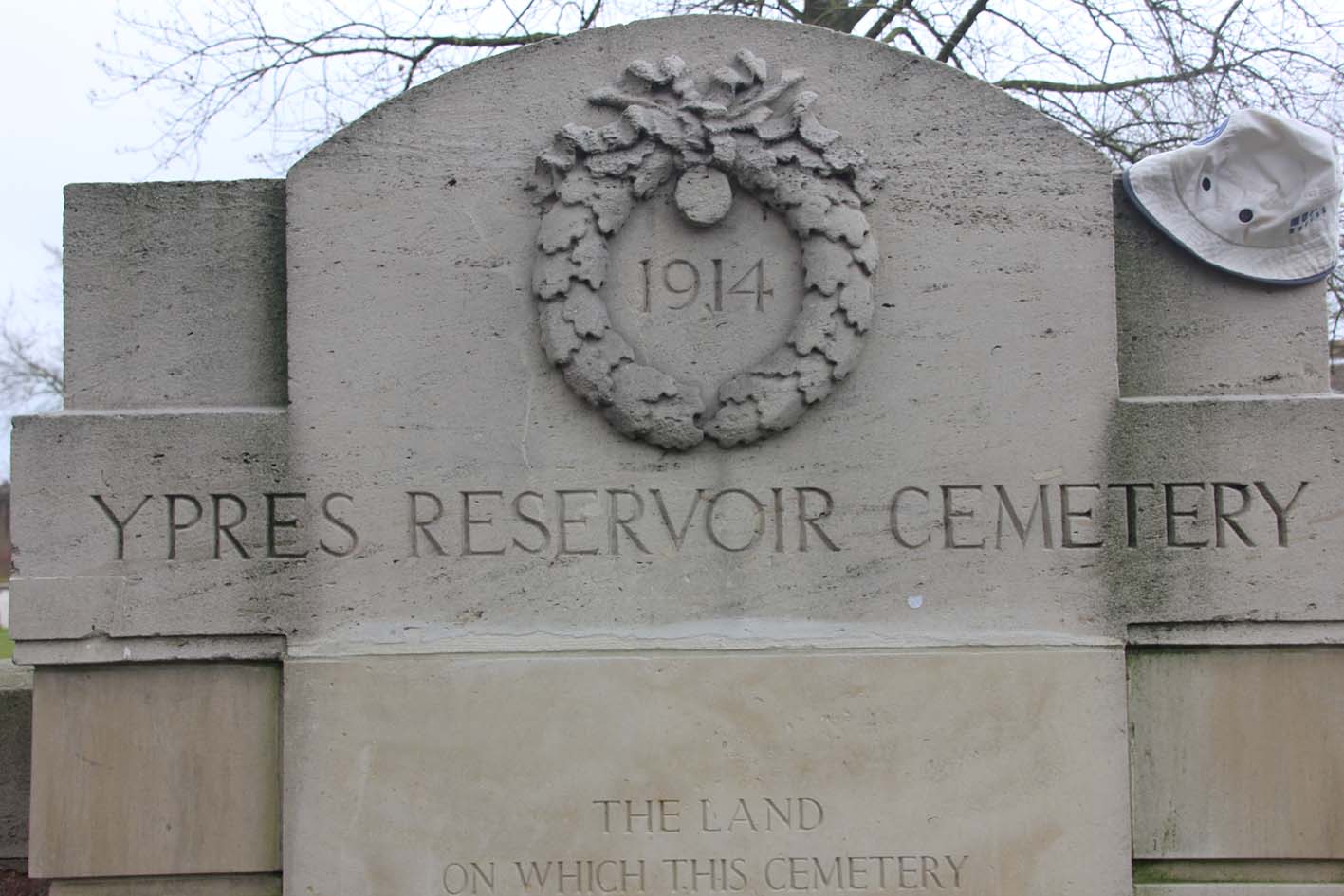Norman Francis McWaters was born in Victoria near Horsham, but came to Toowoomba at an early age. His parents were Alfred David and Lucy McWaters, of “Claverton”, Hume Street, Toowoomba. It seems his father was usually known by his second name; the Honourable W.L. Groom, MHR for the Darling Downs and Minister for Works and Railways, referred to him as Alderman David McWaters in correspondence with the army in 1918.
Norman enlisted in Toowoomba on 5 January 1916. In that year his father served as mayor of the city. Norman gave his occupation as turner; his mother described him as a practical engineer. He was almost 5’8” tall and weighed 130 pounds; unusually, the doctor described his eye colour as yellowish, with a dark complexion and black hair. He was 25 years old and single when he volunteered. At Enoggera he was posted to the Army Medical Corps; he would serve mainly as a stretcher bearer (S/B) in the 3rd Division.
The AAMC 1916 General Reinforcements sailed from Sydney aboard the A64 Demosthenes on 22 December 1916. The men disembarked at Plymouth on 3 March 1917. Over the next five weeks Norman passed through the camps at Parkhouse and Wareham before being deployed to France. On 7 April he was at the massive base at Etaples in the Pas de Calais. To his army mates, not surprisingly, he was known as “Mac”. He was held back with a brief illness, but on 12 June he marched out to the 11th Brigade AMC and four days later was “in the field”.
Norman joined his unit in Belgium during the Battle of Messines. He survived the fighting which resulted in heavy casualties as the AIF and New Zealanders took the Messines Ridge. Soon afterwards Mac and the 11th Field Ambulance moved further north to support the infantry attacks at Ypres. In the battles known as Menin Road and Passchendaele the infantry endured some of the most appalling conditions of the Great War. The names are synonymous with mud, suffering and death.
Stretcher bearers have a special place in discussions of courage and endurance. At Ypres they carried wounded men through knee-deep mud, sometimes for kilometres and usually under fire. They may not have been deliberately targeted by the enemy, but they were in the line of fire, exposed to shot and shell and unarmed. On 17 October 1917 Norman and three other S/Bs were bringing in a wounded man on a stretcher when a shell landed amidst them. All five died. The S/Bs were a loyal and devoted band; they brought in their own when such things happened. Norman was buried in a cemetery near the Ypres prison. After the war he was laid in the official Ypres Reservoir Cemetery (grave I.G.67). He died at 27 years.
At least a dozen S/Bs gave statements to the Red Cross concerning this event. Private Milton’s agrees with all the accounts in important details. ‘ He was in my coy. and I was told that he was killed instantly by a shell whilst in action and carrying a patient on a stretcher at about 4.30 in the afternoon at Passchendaele. His body was brought down and buried in the military cemetery at the back of the prison at Ypres and I assisted at his burial. The grave is marked with a cross with his name and number on. One of his fellow S/Bs named Reedman was killed at the same time and the other two died later of their wounds. Reedman is buried in the next grave. Private Thomas Bawdin, who brought Norman’s body in for burial, wrote a detailed account of his actions, including: . . . we boys (S/Bs) are pleased to think that all our comrades killed in France have been brought into the backwards areas by us and all have had a decent Christian burial in Military cemeteries. Unfortunately there is not the slightest doubt about the death of Private McWaters.’
A letter was received by the firm Charles Wade & Co., Bradford, in 1918 inquiring about the death of Private McWaters. It indicated that his parents in Australia were asking friends in England to help find information about Norman. The letter includes:
‘Private McWaters was reported killed on 17th October 1917 but owing to some mistake in the number the poor Mother clings to the hope that he may still be alive. She wants Mr Wade to find out any particulars in regard to her son’s affairs.’
There was to be no good news. Alderman David McWaters was nominated NOK and Lucy was the beneficiary of Norman’s will. David signed the receipts for his son’s medals and mementoes. A parcel of his possessions reveals that, like most Diggers, Norman was curious and interested in the experience of travel and the places the war took him; among his effects were a French book and newspaper clippings. After the war David wrote to the historian and mentioned that an uncle and 8 cousins of Norman’s had served in the AIF; Norman “alone paid the supreme sacrifice”.
Toowoomba Grammar School Archive Records State that he started at the school on 31st January 1905 and left on 14th December 1906. The School Magazine dated May 1918 states, ‘MCWATERS, N. F.-Son of A. D. McWaters, of Hume Street. Served in France as bearer to the A.M.C. from April, 1917. Killed at Paschendaele, October 17th, 1917. ‘
External Links:
Australian War Memorial Honour Roll
National Archives of Australia Military Records
AWM4 SAIF unit war diaries 26/54/9
Australian Red Cross Society Wounded and Missing
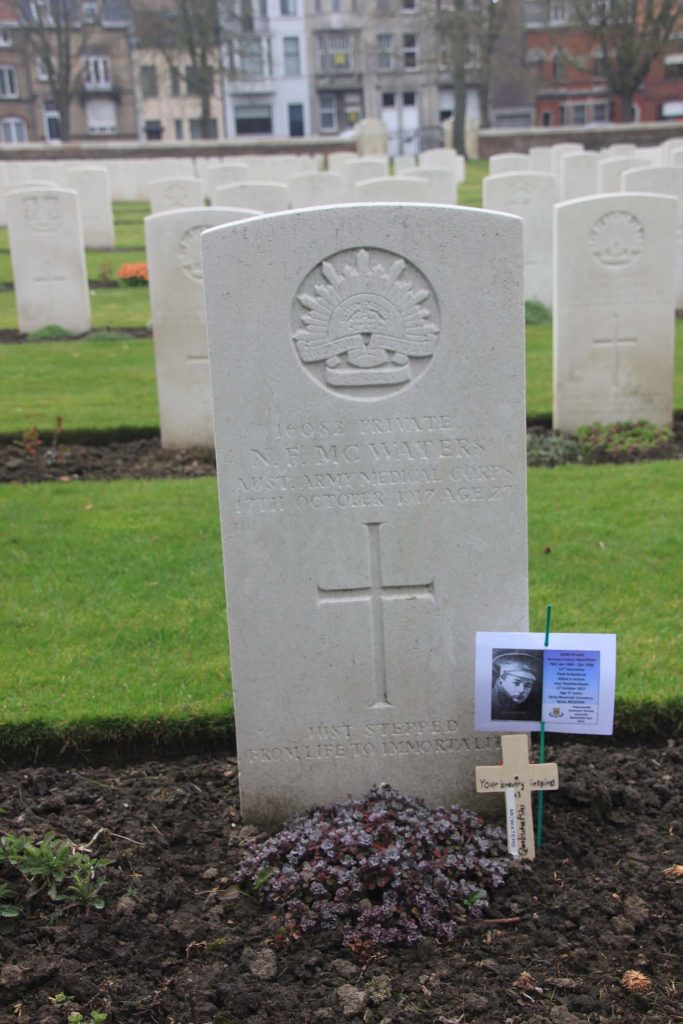
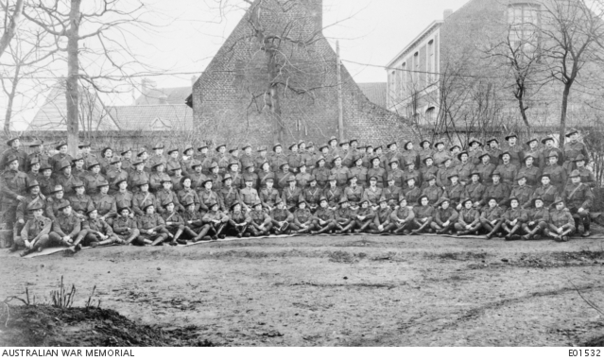
Group portrait of the 11th Field Ambulance at Bailleul. The men are all identified but the resolution of this image is not sufficient to attempt matching. Courtesy of AWM E01532
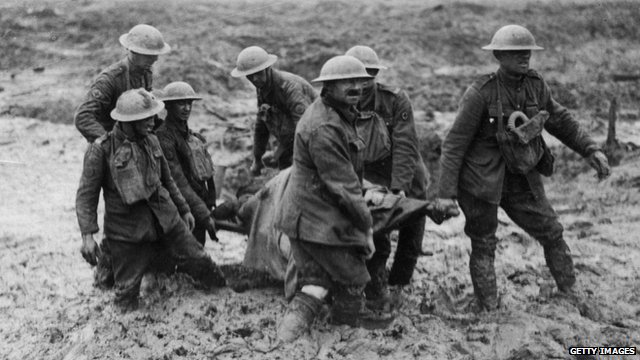
British stretcher bearers in the mud of Passchendaele, illustrating the appalling conditions through which casualties had to be managed and evacuated. Courtesy of https://news.bbcimg.co.uk/media/images/72823000/jpg/_72823877_Passchendaele_getty.jpg
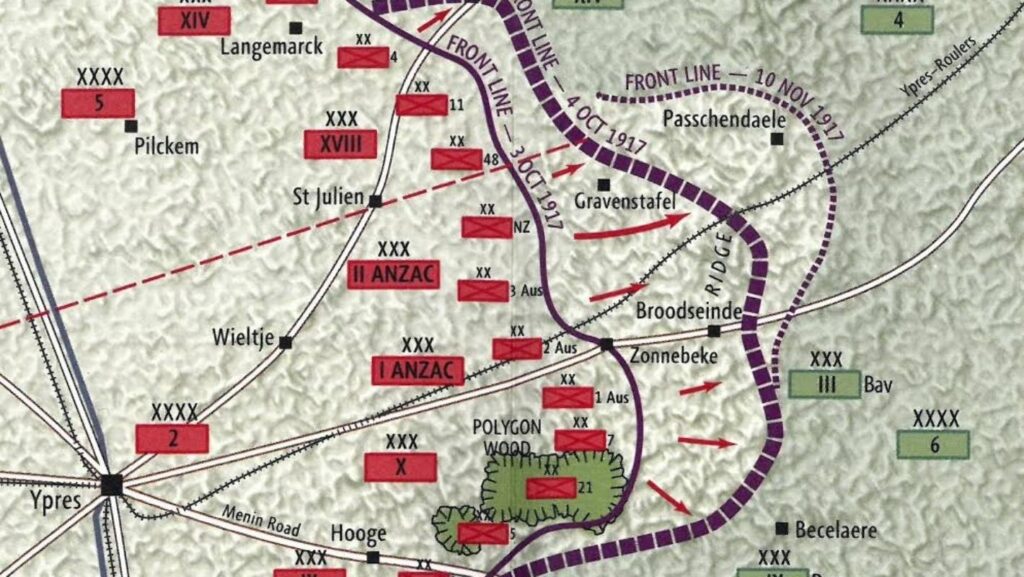
Passchendaele October 1917 offensive
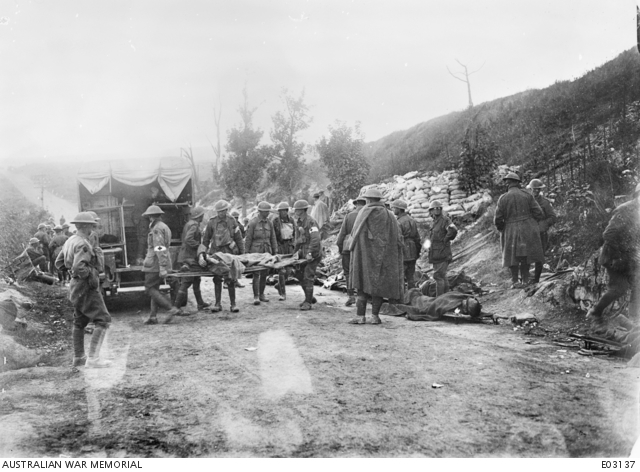
Stretcher bearers of the 11th Field Ambulance carrying the wounded from an Advanced Dressing Station to a waiting motor ambulance for conveyance to a Clearing Station. Courtesy of AWM

